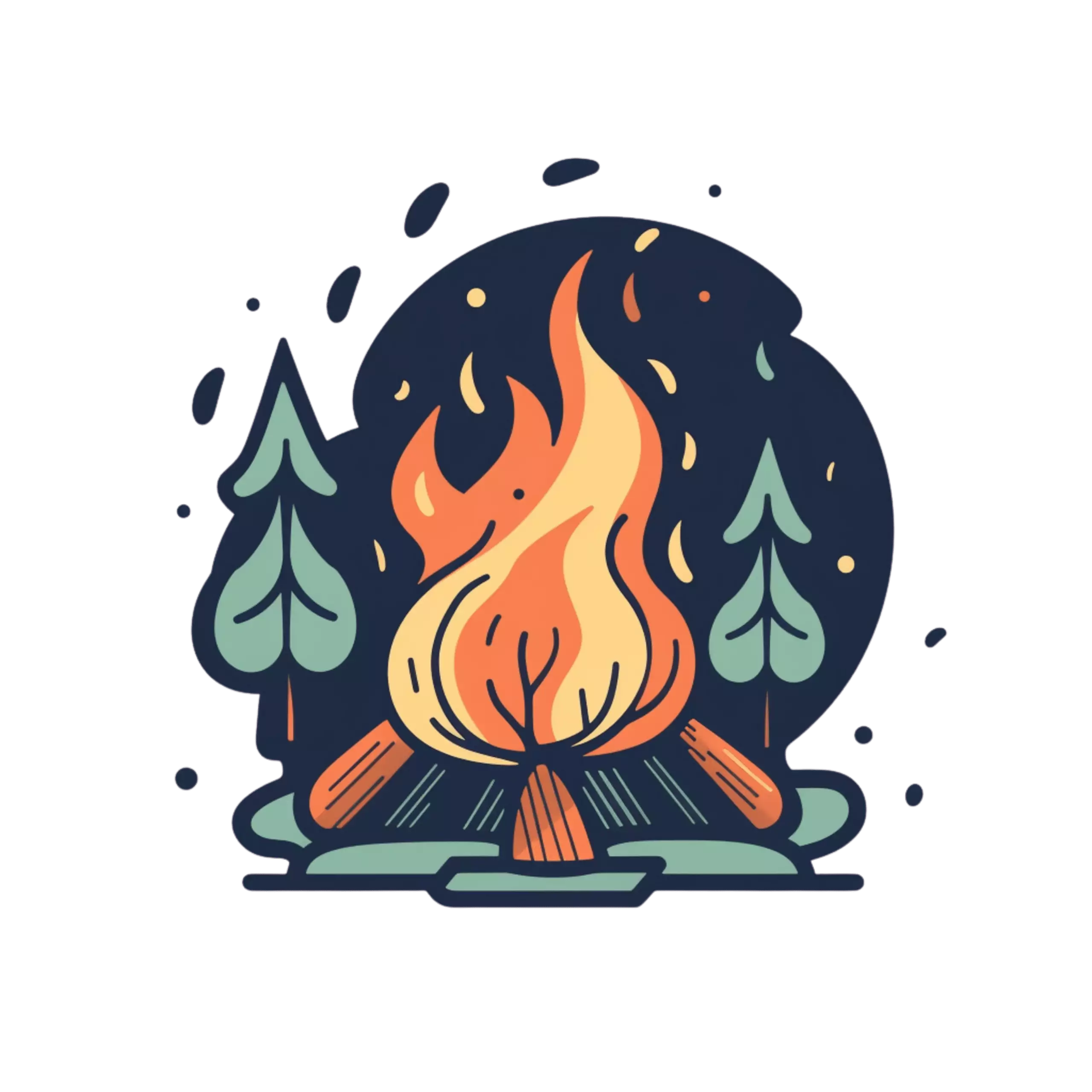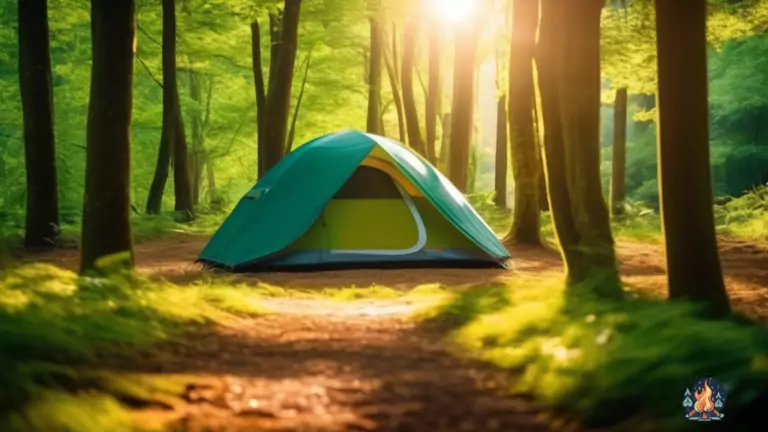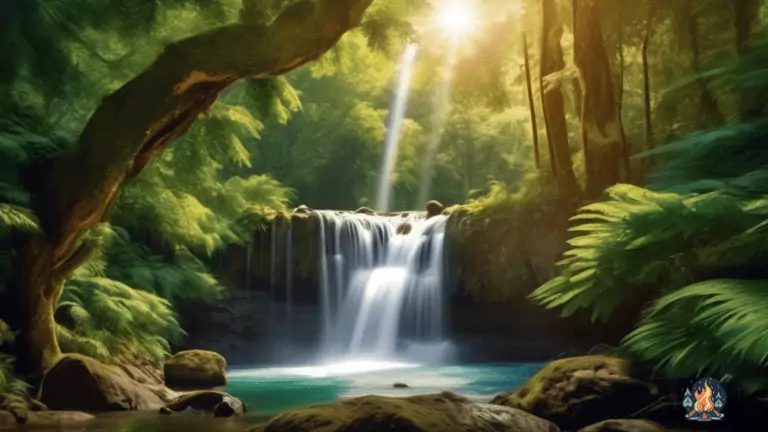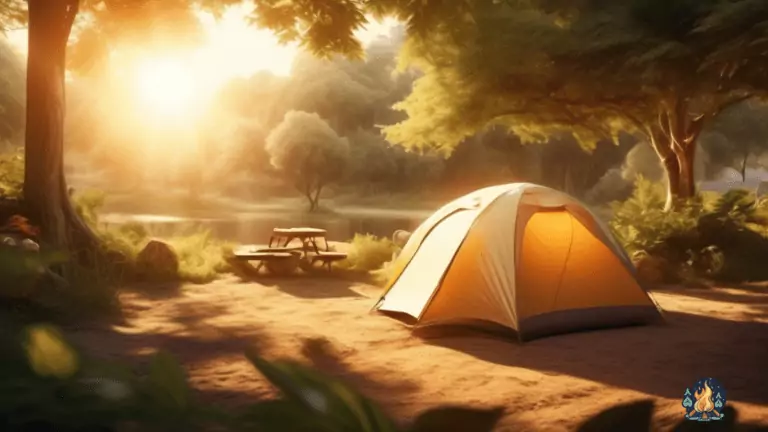Common Issues With RV Plumbing And How To Troubleshoot
by Kevin Fairbanks • Updated: January 21, 2024
Learn how to troubleshoot common RV plumbing issues like a pro and keep your adventures on the road flowing smoothly. Don’t let plumbing problems dampen your journey – click here to become an expert in RV plumbing troubleshooting today!
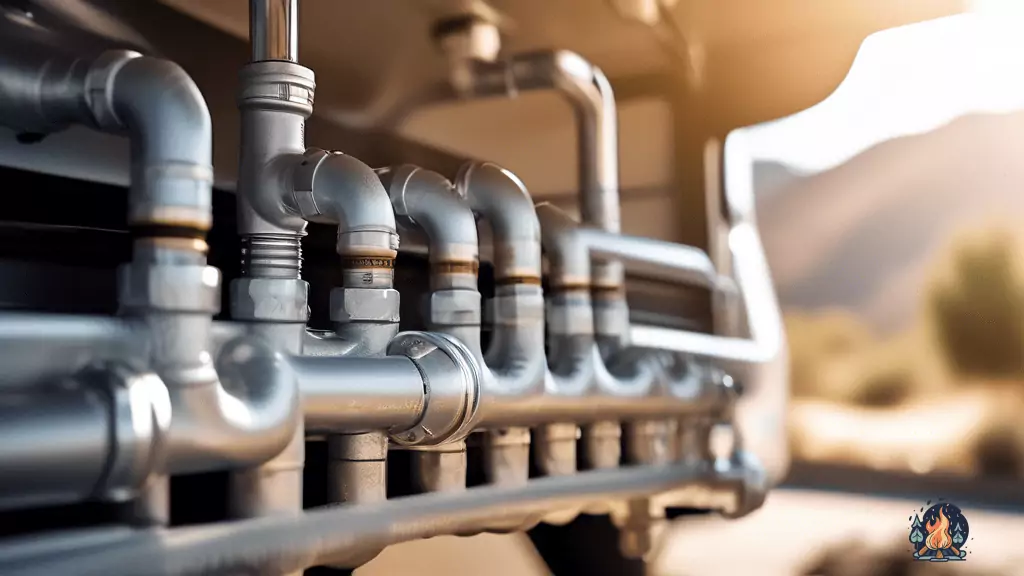
Are you an adventurer who loves hitting the road in your trusty RV? Well, let’s face it, life on the open road isn’t always smooth sailing. In fact, when it comes to your RV’s plumbing, you might encounter some common issues that can put a damper on your travels.
But fear not, fellow road warrior! In this article, we will dive into the world of RV plumbing and explore the most common problems you might face, along with some handy troubleshooting tips to keep you laughing and your plumbing flowing smoothly.
Picture this: you’re in the middle of nowhere, enjoying the peace and tranquility of nature, when suddenly you notice a leak in your RV’s plumbing. Oh no! Whether it’s a pesky drip from the faucet or a full-blown water explosion, leaks can be a real buzzkill. But don’t worry, my friend, you can tackle this issue head-on.
By identifying the source of the leak and tightening any loose connections, you’ll be back on the road in no time, all while keeping your sense of humor intact. Remember, laughter is the best medicine, especially when it comes to dealing with RV plumbing woes.
Now, let’s not forget about everyone’s favorite bathroom-related mishaps – clogged drains and toilets. It’s the stuff of nightmares, really. But fear not, brave traveler! With a plunger in one hand and a sense of humor in the other, you can conquer even the most stubborn clogs.
By utilizing some simple techniques, such as plunging vigorously or using a drain snake, you can bid farewell to those pesky clogs and get back to enjoying the beauty of the open road. So, strap on your overalls and get ready to troubleshoot those common RV plumbing problems like a true hero.
After all, what’s an adventure without a few bumps in the road, right?
Key Takeaways
- Common issues with RV plumbing include leaks, clogged drains and toilets, water heater problems, and water flow problems.
- To fix leaks, identify the source and tighten connections.
- Clogged drains and toilets can be resolved by regular cleaning and using a plunger or drain snake.
- Water heater problems can be addressed by checking the propane supply and bypass valve.
Identifying Leaks and Water Pressure Problems
Oh great, yet another opportunity for your RV to surprise you with leaks and water pressure problems. But fear not, intrepid RV owner, for you’re about to become a master troubleshooter in the world of RV plumbing.
Leaks can be a real pain, but they’re not impossible to fix. Start by checking all the connections in your plumbing system, looking for any signs of water dripping or pooling. Don’t forget to check under sinks, behind toilets, and around the water heater. If you spot a leak, tighten the connection or replace any damaged parts.
It’s also a good idea to inspect your water pump, as a faulty pump can cause low water pressure. Make sure the pump is properly connected and functioning, and if necessary, replace it with a new one.
And remember, always keep a sense of humor handy when dealing with these pesky plumbing issues. It’s the best way to stay sane while you’re knee-deep in water.
Clogged Drains and Toilets
To prevent clogged drains and toilets in your RV, it’s important to regularly clean out debris and use a plunger if necessary.
Let’s face it, nobody wants to deal with a clogged toilet while on the road. It’s not exactly the kind of roadside attraction you were hoping for, right?
So, take a few minutes every now and then to give your drains and toilet a good clean. Get rid of any hair, soap residue, or mysterious objects that may have found their way in there.
And if you do find yourself face to face with a stubborn clog, don’t panic! Just grab a plunger and give it a few good plunges. It’s like a workout for your toilet, and who doesn’t love a good workout? Plus, think of the satisfaction you’ll feel when that clog finally gives in and lets the water flow freely again. It’s a victory worth celebrating, my friend!
Now, if you’ve done your due diligence and the clog still won’t budge, it might be time to bring out the big guns. No, I’m not talking about explosives (although that might be tempting in the heat of the moment). I’m talking about a drain snake.
This handy tool will help you reach deep into the depths of your plumbing system and dislodge any stubborn clogs that are causing you grief. It’s like a superhero cape for your drains, swooping in to save the day and restore order to your RV kingdom.
So, don’t let clogged drains and toilets ruin your road trip adventures. Stay on top of regular cleaning, keep a plunger handy, and be prepared to unleash the power of a drain snake when the going gets tough.
Your RV plumbing will thank you, and you’ll be able to focus on the more important things in life, like finding the best campfire s’mores recipe.
Issues with Water Heater and Pump
First, check if your water heater isn’t producing hot water as this is a common issue in RVs. Did you know that approximately 27% of RV owners experience problems with their water heaters?
If you find yourself in the unfortunate situation of taking a lukewarm shower in your cozy RV, fear not! There are a few troubleshooting steps you can take to get that hot water flowing again.
Start by checking the propane supply to your water heater. Sometimes, the issue may simply be that you’re running low on propane, and your water heater isn’t getting enough fuel to heat the water. So, grab your trusty propane tank gauge (or your makeshift magic wand if you’re feeling fancy) and check the levels. If you’re running low, it’s time to refill that tank and get back to steaming hot showers and happy campers.
Next, take a look at the water heater’s bypass valve. This sneaky little valve can sometimes get turned the wrong way, causing the hot water to bypass the tank altogether. It’s like the RV equivalent of a magician’s disappearing act, except instead of pulling a rabbit out of a hat, it’s making your hot water vanish. So, locate the bypass valve (hint: it’s usually near the water heater) and make sure it’s in the correct position. If it’s not, flip it back to where it should be and voila! Your hot water should return, making your RV experience as magical as a unicorn riding a rainbow.
Now, let’s move on to the water pump. If you’re experiencing issues with water flow in your RV, your water pump might be the culprit. It’s like the heart of your RV’s plumbing system, pumping water to all the necessary destinations. But sometimes, even the best hearts can have a hiccup or two.
So, first, check if the water pump is turned on. It may seem obvious, but you’d be surprised how many people forget to flip that switch. If it’s already on, try turning it off and then back on again. Sometimes, all it needs is a little reboot to get back into the water pumping game.
If that doesn’t solve the problem, it’s time to put on your detective hat and search for any potential leaks. Leaky pipes can cause a drop in water pressure, making it seem like your pump isn’t working properly. So, grab a flashlight, get down on your hands and knees (or just pretend you’re doing a cool spy move), and inspect all the pipes for any signs of water leakage. If you find any, it’s time to channel your inner plumber or call in the professionals to fix those leaks and restore the flow of water throughout your RV.
Remember, even though plumbing issues can be a pain, they don’t have to ruin your RV adventures. With a little troubleshooting and a sprinkle of humor, you’ll be back to enjoying hot showers and smooth water flow in no time.
Happy camping!
Frozen or Burst Pipes
If you’re not careful during the winter months, you could end up with frozen or burst pipes in your RV, causing a major headache and potential damage. But don’t worry, we’ve got some tips to help you troubleshoot this common issue and get your plumbing back in working order.
First, let’s talk about how to prevent frozen pipes in the first place. One of the most important things you can do is insulate your RV’s pipes. You can use foam pipe insulation or even wrap them in heat tape. Another trick is to leave your cabinet doors open to allow warm air to circulate around the pipes. And don’t forget to disconnect and drain your hoses when you’re not using them.
But let’s say you didn’t take these precautions and now you have frozen pipes. What do you do? Well, first, don’t panic. There are a few things you can try to thaw out the pipes. You can use a hairdryer or heat gun to gently warm the pipes. Just be careful not to overheat them and cause more damage. Another option is to use a space heater or electric blanket to warm up the area where the pipes are located. And if all else fails, you can try using a portable heat source, like a hot water bottle or heating pad, to slowly thaw the pipes.
Here’s a handy table to summarize these troubleshooting tips:
| Prevention | Thawing |
|---|---|
| Insulate pipes | Use a hairdryer or heat gun |
| Leave cabinet doors open | Use a space heater or electric blanket |
| Disconnect and drain hoses | Use a portable heat source |
Remember, frozen or burst pipes can be a real pain, but with a little bit of know-how and some patience, you can get your RV’s plumbing back in working order in no time. Stay warm and stay dry, my friends!
Troubleshooting Common RV Plumbing Problems
When you encounter problems with your RV’s plumbing system, it’s important to have a clear understanding of the underlying causes and how to effectively address them.
Here are a few common RV plumbing problems you might come across and some humorous tips to troubleshoot them:
- Clogged Drains: If you find yourself standing ankle-deep in water while taking a shower, it’s probably a sign of a clogged drain. Don’t panic! Grab a plunger and give it a good plunge. If that doesn’t do the trick, try pouring hot water down the drain or use a drain snake to remove any stubborn clogs. And remember, if all else fails, you can always call on the magical powers of a professional plumber.
- Leaky Faucets: Drip, drip, drip…the sound of a leaky faucet can drive you to the brink of madness. But fear not, brave RVer! You can fix this annoyance with a few simple steps. Start by turning off the water supply and then disassembling the faucet. Look for any worn-out washers or seals and replace them. If you’re not feeling particularly handy, just imagine that the dripping sound is your own personal lullaby, and drift off to sleep with dreams of a leak-free future.
- Toilet Troubles: Ah, the joys of a malfunctioning toilet in your RV. If your toilet is constantly running, it’s time to take action. Check the flapper valve and make sure it’s properly sealing the tank. If it’s not, give it a little wiggle or replace it altogether. And if your toilet decides to go on strike and refuses to flush, try pouring a bucket of water directly into the bowl. If that doesn’t work, well, at least you can say you’ve had a unique experience in the world of RVing!
- Water Pressure Problems: Is the water in your RV trickling out like a snail on a leisurely stroll? It’s time to tackle the water pressure problem head-on. Start by checking the water pressure regulator and make sure it’s set to the appropriate level. If that doesn’t help, try cleaning out the aerator on your faucets or showerhead. And if all else fails, well, you can always use this as an opportunity to practice your water conservation skills. Remember, every drop counts!
So, the next time you find yourself faced with a pesky plumbing problem in your RV, don’t fret. With a little humor and some handy tips, you’ll be back to enjoying your adventures on the open road in no time!
Frequently Asked Questions
How often should I check for leaks in my RV plumbing system?
You should check for leaks in your RV plumbing system at least once a month to prevent any major issues. Did you know that a small leak can waste up to 90 gallons of water a day? So keep an eye out and save water!
What are some signs of a clogged drain in an RV and how can I fix it?
If you’re noticing water backing up in your RV, it’s a sure sign of a clogged drain. Time to channel your inner plumber! Grab a plunger or use a drain snake to clear the blockage and get things flowing smoothly again.
Is it normal for an RV water heater to make noise when in use?
Yes, it is normal for an RV water heater to make noise when in use. The sound is usually caused by the heating element or the burner. Don’t worry, it’s just your water heater’s way of saying, u0026quot;I’m working hard for you!u0026quot; So sit back, relax, and enjoy the symphony of hot water.
How can I prevent my RV pipes from freezing during cold weather?
To prevent your RV pipes from freezing in cold weather, insulate them with pipe sleeves or heat tape. Keep the interior warm, open cabinet doors to allow heat circulation, and let faucets drip. And remember, frozen pipes make for very chilly showers!
Are there any DIY methods to fix common RV plumbing problems before calling a professional?
Sure, there are plenty of DIY methods to fix common RV plumbing problems before calling a pro! From unclogging sinks with a plunger to patching up leaks with duct tape, you’ll be a plumbing superhero in no time!

Hi, I’m Kevin, a lifelong camping enthusiast and the voice behind Campfire Discoveries. From tent to RV to cabin camping, I’ve explored it all. Join me as we share stories and tips around the campfire, deepening our connection with the great outdoors.
Keep Reading
-
Tent For Solo Camping: Find Your Perfect Adventure Companion
Looking for the perfect tent for solo camping? Look no further! Find your ideal adventure companion and elevate your outdoor experiences with our top recommendations. Start planning your next journey now!
-
Experience Nature’s Beauty: RV Camping Near Waterfalls
Immerse yourself in nature’s beauty and create lifelong memories with RV camping near waterfalls. Experience breathtaking views and discover the ultimate outdoor adventure. Click now to start your unforgettable journey!
-
Discover The Thrill Of Free Camping
Embark on an exhilarating journey with free camping and unlock the wonders of the great outdoors. Start creating unforgettable memories today! Click here to discover the thrill of free camping now.
